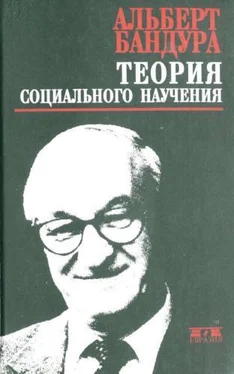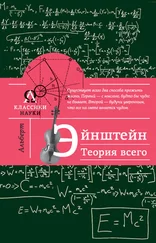Dekker E., Pelser H. E., & Groen J. «Conditioning as a Cause of Asthmatic Attacks». Journal of Psychosomatic Research, 1957, 2: 97-108.
Ditrichs R., Simon S., & Greene B. «Effect of Vicarious Scheduling on the Verbal Conditioning of Hostility in Children». Journal of Personality and Social Psychology, 1967, 6: 71–78.
Drabman R. S., Spitalnik R., &, O'Leary K. D. «Teaching Self-Control to Disruptive Children». Journal of Abnormal Psychology, 1973, 82: 10–16.
Kulany D. E. «Awareness, Rules, and Propositional Control: A Confrontation with S-R Behavior Theory». In T. R. Dixon & D. L. Horton (Eds.), Verbal Behavior and General Behavior Theory, Englewood Cliffs N. J.: Prentice-Hall, 1968.
Dulany D. E., & O'Connell D. C. «Does Partial Reinforcement Dissociate Verbal Rules and the Behavior They Might Be Presumed to Control?» Journal of Verbal Learning and Verbal Behavior, 1963, 2: 361–372.
Ellis A. Reason and Emotion in Psychotherapy. New York: Stuart, 1962.
Endler N. S., & Magnusson D. (Eds.) Interactional Psychology and Personality. Washington D. C: Hemisphere, 1975.
Erihsen C. W., & Kuethe J. L. «Avoidance Conditioning of Verbal Behavior Without Awareness: A Paradigm of Repression». Journal of Abnormal and Social Psychology, 1956, 53: 203–209.
Estes W. K. «Reinforcement in Human Behavior». American Scientist, 1972, 60: 723–729.
Feingold B. D., & Mahoney M. J. «Reinforcing Effects on Intrinsic Interest: Undermining the Overjustification Hypothesis». Behavior Therapy, 1975, 6: 367–377.
Eelixbrod J. J., & O'Leary K. D. «Self-Determination of Academic Standards by Children». Journal of Educational Psychology, 1974, 66: 845–850.
Flanders J. P. «A Review of Research on Imitative Behavior». Psychological Bulletin, 1968, 69: 316–337.
Fuchs C, & Rehm L. P. «The Treatment of Depression through the Modification of Self-control Behaviors». Unpublished manuscript, University of Pittsburgh, 1975.
Gale E. N., & Jacobson M. B. «The Relationship between Social Comments ans Unconditioned Stimuli and Fear Responding». Behaviour Research and Therapy, 1970, 8: 3 0 1 -307.
Gardner R. A., & Gardner В. Т. «Teaching Sign Language to a Chimpanzee». Science, 1969, 165: 664–672.
Geer J. H. «A Test of the Classical Conditioning Model of Emotion: the Use of Nonpainful Aversive Stimuli as Unconditioned Stimuli in a Conditioning Procedure». Journal of Personality and Social Psychology, 1968, 10: 148–156.
Gerbner G., & Gross L. «Living with Television: The Violence Profile». Journal of Communication, 1976, 26: 173–199.
Gerst M. S. «Symbolic Coding Processes in Observational Learning». Journal of Personality and Social Psychology, 1971, 19: 7-17.
Gewirtz J. L., & Stingle K. G. «Learning of Generalized Imitation as the Basis for Identification». Psychological Review, 1968, 75: 374–397.
Glynn E. L. «Classroom Applications of Self-Determined Reinforcement». Journal of Applied Behavior Analysis, 1970, 3:123–132.
Goldfried M. R., & Merbaum M. (Eds.), Behavior Change through Self-Control. New York: Holt, Rinehart & Winston, 1973.
Gray V. «Innovation in the States: A diffusion Study». American Political Science Review, 1973, 4: 1174–1185.
Greene D. Immediate and Subsequent Effects of Differential Reward Systems on Intrinsic Motivation in Public School Classrooms. Unpublished doctoral dissertation, Stanford University, 1974.
Grings W. W. «The Role of Consciousness and Cognition in Autonomic Behavior Change». In F. J. McGuigan and R. Schoonover (Eds.), The Psychophysiology of Thinking. New York: Academic Press, 1973.
Grose R. F. «A Comparison of Vocal and Subvocal Conditioning of the Galvanic Skin Response». Unpublished doctoral dissertation, Yale University, 1952.
Gutkin D. С «The Effect of Systematic Story Changes on Intentionality in Children's Moral Judgments», Child Development, 1972,43:187–195.
Harris F. R., Wolfe M. M., & Baer D. M. «Effects of Adult Social Reinforcement on Child Behavior». Young Children, 1964, 20: 8-17.
Harris M. В., & Evans R. C. «Models and Creativity». Psychological Reports, 1973, 33: 763–769.
Hart B. M., & Risley T. R. «Establishing Use of Descriptive Adjectives in the Spontaneous Speech of Disadvantaged Preschool Children». Journal of Applied Behavior Analysis, 1968, 1: 109–120.
Hastorf A. H. «The 'Reinforcement' of Individual Actions in a Group Situation». In L. Krasner & L. P. Ullmann (Eds.), Research in Behavior Modification. New York: Holt, Rinehart & Winston, 1965.
Hatano G. «Subjective and Objective Cues in Moral Judgment». Japanese Psychological Research, 1970,12: 96-106.
Hayes K. J., & Hayes C. «Imitation in a Home-raised Chimpanzee». Journal of Comparative and Physiological Psychology, 1952, 45: 450–459.
Hefferline R. F., Bruno L. J. J., & Davidowitz J. E. «Feedback Control of Covert Behaviour». In K. Connolly (Ed.), Mechanisms of Motor Skill Development. New York: Academic Press, 1970.
Herbert E. W., Gelfand D. M., & Hartmann D. P. «Imitation and Self-Esteem as Determinants of Self-Critical Behavior». Child Development, 1969, 40: 421–430.
Hernandez-Peon R., Scherrer H., & Jouvet M. «Modification of Electric Activity in Cochlear Nucleus during 'Attention' inUnanesthetizedCats». Science, 1956, 23: 3 3 1 -332.
Herrnstein R. J. «Method and Theory in the Study of Avoidance». Psychological Review, 1969, 76: 49–69.
Hicks D. J. «Girls' Attitudes toward Modeled Behaviors and the Content of Imitative Private Play». Child Development, 1971,42:139–147.
Hildebrant D. E., Feldman S. E., & Ditrichs R. A. «Rules, Models, and Self-reinforcement in Children». Journal of Experimental Psychology, 1960, 60: 97-102.
Hinde R. A., & Hinde-Stevenson J. Constraints on Learning. New York: Academic Press, 1973.
Horn G. «Electrical Activity of the Cerebral Cortex of the Unanesthetized Cat during Attentive Behavior». Brain, 1960, 83: 57–76.
Hughes С, Tremblay М., Rapoport R. N.. & Leighton A. H. People of Cove and Woodlot: Communities from the Viewpoint of Social Psychiatry. New York: Basic Books, 1960.
Jackson B. «Treatment of Depression by Self-Reinforce-ment». Behavior Therapy, 1972, 3: 298–307.
Jeffery R. W. «The Influence of Symbolic and Motor Rehearsal on Observational Learning». Journal of Research In Personality, 1976, 10: 116–127.
Jeffrey D. B. «A Comparison of the Effects of External Control and Self-Control on the Modification and Maintenance of Weight». Journal of Abnormal Psychology, 1974, 83: 404–410.
KanferK. H., & Marston A. R. «Determinants of Self-Reinforcement in Human Learning». Journal of Experimental Psychology, 1963, 66: 245–254.
Kaufman A., Baron A, & Kopp R. E. «Some Effects of Instructions on Human Operant Behavior». Psychonomic Monograph Supplements, 1966, 1: 243–250.
Читать дальше












